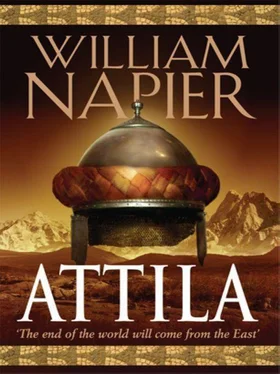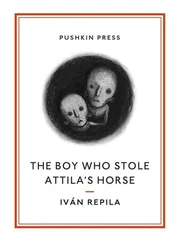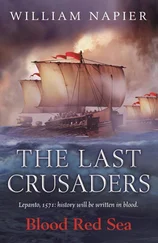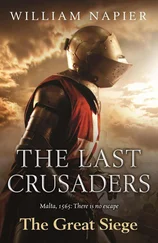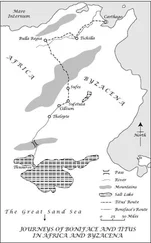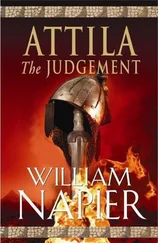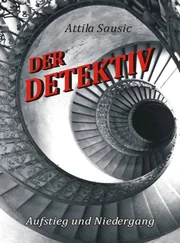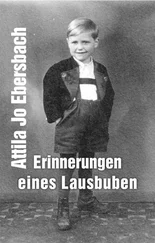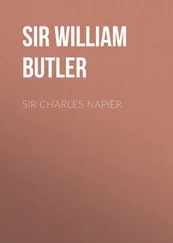William Napier - Attila
Здесь есть возможность читать онлайн «William Napier - Attila» весь текст электронной книги совершенно бесплатно (целиком полную версию без сокращений). В некоторых случаях можно слушать аудио, скачать через торрент в формате fb2 и присутствует краткое содержание. Жанр: Исторические приключения, на английском языке. Описание произведения, (предисловие) а так же отзывы посетителей доступны на портале библиотеки ЛибКат.
- Название:Attila
- Автор:
- Жанр:
- Год:неизвестен
- ISBN:нет данных
- Рейтинг книги:5 / 5. Голосов: 1
-
Избранное:Добавить в избранное
- Отзывы:
-
Ваша оценка:
- 100
- 1
- 2
- 3
- 4
- 5
Attila: краткое содержание, описание и аннотация
Предлагаем к чтению аннотацию, описание, краткое содержание или предисловие (зависит от того, что написал сам автор книги «Attila»). Если вы не нашли необходимую информацию о книге — напишите в комментариях, мы постараемся отыскать её.
Attila — читать онлайн бесплатно полную книгу (весь текст) целиком
Ниже представлен текст книги, разбитый по страницам. Система сохранения места последней прочитанной страницы, позволяет с удобством читать онлайн бесплатно книгу «Attila», без необходимости каждый раз заново искать на чём Вы остановились. Поставьте закладку, и сможете в любой момент перейти на страницу, на которой закончили чтение.
Интервал:
Закладка:
‘Here,’ said Uldin. ‘Here he is.’
The warrior moved forward and dropped a dark, sodden sack at Stilicho’s feet.
The general grunted and plucked open the sack. He had seen enough of the raw realities of battle in his thirty years of soldiering to be undismayed by the sight of severed heads and limbs. All the same, the dismembered remains of Rhadagastus – his hands trailing purple sinews from their ragged wrists, his blood-spattered face and splayed eyes staring back up at him out of the gloom of the sack – slowed his heart for a moment or two.
So this was the great Germanic warlord who had promised to slaughter two million Roman citizens and hang every senator from the eaves of the Senate House. Who had said he’d leave the senators’ corpses hanging there from the Senate House to be picked clean by the crows, then the bare skeletons would clang together like bone bells in the wind – the man had been a poet.
A little less wordy now, old friend? thought Stilicho.
When he looked up, he said, ‘My orders were for Rhadagastus to be taken alive.’
Uldin remained expressionless. ‘That is not our way.’
‘No, it is the Roman way.’
‘Do you give King Uldin orders, soldier?’
Stilicho hesitated. He knew diplomacy was not his strong point. Soldiers said what they thought. Diplomats said what others wanted to hear. But for now he must try to… Besides, you should always tread warily with a man who refers to himself in the third person.
Uldin took advantage of the general’s hesitancy. ‘Remember,’ he said softly, stroking the thin, grey wisp of beard that barely covered his chin, ‘the Huns are your allies, not your slaves. And alliances, like bread, can be broken.’
Stilicho nodded. He would also remember, for the rest of his life, the way the Huns fought. God help us, he thought, if they should ever
…
‘When we ride into Rome in triumph, later this month,’ he said, ‘you and your warriors will ride with us.’
Uldin relaxed a little. ‘So we will,’ he said.
With that, he turned on his heel and walked out into the sunshine.
2
Rome, late August 408
The Imperial Palace lay in silence under the starlit summer sky.
The boy was sweating under his thin bedsheet, his brow furrowed with furious concentration and his hand clutching the handle of his squat little knife. Tonight he would creep out of his chamber into the shadows of the palace courtyard, he would slip past the nightguards unseen, and he would gouge out the eyes of the Emperor of Rome.
He heard the nightguards go past his door, talking in low, lugubrious voices. He knew what they were talking about: the recent defeat of the rag-tag barbarian armies of Rhadagastus. The Roman army had defeated them, sure enough, but only with the help of their new allies: that ferocious, despised tribe from the east. Without the help of such allies, the Roman army was too weak and demoralised to take the field against so much as a phalanx of perfumed Greeks.
When the guards had gone, and the tremulous orange flicker of their torches had died away, the boy slipped out from under his sheet, swiped the sweat from his face with a cupped hand, and crept to the door. It opened easily, for he had taken the precaution of dripping olive oil over the hinges during the day. Then he was out into the courtyard. The heat of the Italian summer night was oppressive. Not a dog barked from the alleyways, not a cat screeched from the rooftops. The distant hubbub of the great city could not be heard tonight.
He heard the footsteps coming closer again. There were two of them: battered old soldiers, retired from the Frontier Guard. The boy pressed himself into the shadows.
The two guards paused for a moment and one stretched back his hunched shoulders. They were only a few feet away from the boy, standing between two columns against the moonlight, silhouettes as black as doors into a tomb. As black and sightless as a blinded emperor’s eyes.
‘And then, Rhadagastus said, he’d fill the Senate House with straw and set a torch to it, and leave it nothing but a field of blackened rubble.’
The other guard, tough old soldier that he was, fell into a pensive silence for a moment or two. Even if the Senate was nowadays only an emasculated shadow of its former self – even if, as everyone knew, the empire was really run by the imperial court and its few plutocratic cronies, regardless of what the Senate might or might not want – nevertheless, the Senate House represented all that was proudest and most venerable in Rome. For a barbarian force to sweep in and destroy it… That would have been a shame unspeakable.
But the barbarians had been defeated. For now. With the help of other barbarians.
In the shadows behind the two old soldiers crouched the boy with his knife.
Every night, he had to pass down that long, lonely corridor in this remote, silent courtyard of the palace on the Palatine Hill, followed by the blood-chilling gaze of the first and greatest emperor. At the far end lay his miserable little chamber – no lavish suite for him – with its single guttering cheap clay lamp, as if he were no more than a slave. Such was his accommodation: a bare wooden bed in a windowless cell at the back of the palace, immediately adjacent to the kitchen quarters. The indignity of it all was not lost on the boy, Rome’s supposedly most valued hostage. In other chambers around the palace lived other young hostages of other barbarian peoples: Sueves and Vandals, Burgundians and Gepids, Saxons and Alemans and Franks; but even they looked down upon him as the lowest of the low, and refused to admit him to their conversations or games. And their contempt kindled further his always fierce heart.
Tonight he would have his revenge on those unforgiving imperial eyes, and on all those months of slaps and sneers and scornful Roman laughter. The Romans were terrified of omens, as riven with superstitious dread as any people he knew. They feared the garbled prophecies of every toothless old hag in the market-place, every misbegotten birth of ewe or mare, every portent that their wide eyes saw in the wind or the stars.
The boy believed in Astur, the god of his people, and in his knife; but the Romans, like all weak people, believed in everything. When they saw that great first emperor of theirs suddenly blinded.. . Then the boy would see what happened to that scornful Roman laughter. It would freeze in their lilywhite throats.
In the tumult of tomorrow’s celebrations and games, he would escape. He would soon be far, far away from this corrupt and festering city, heading north into the mountains. After many weeks’ or months’ hard journeying, he would descend from them again with the sun behind him, and he would be back on the wide and windy plains of his beloved steppe country before the first snows fell. Here, he was nothing but a hostage: a barbarian hostage, caged in a windowless chamber in this decrepit Imperial Palace, in this crabbed, cobwebbed, anxious, doomed old city. But there, among his fierce, free people, he was a prince of the royal blood, the son of Mundzuk, the son of King Uldin himself. Uldin was the son of Torda, the son of Berend, the son of Sulthan, the son of Bulchu, the son of Bolug, the son of Zambour, the son of Rael, the son of Levanghe…
The names of all those ancient generations were graven on his heart; for the Huns, like the Celts, committed nothing of value to paper or stone, for fear that strangers and unbelievers might discover their holiest mysteries. Among which was this secret genealogy, these links in the divine chain of kingship that led back to the great hero Tarkan, the son of Kaer, the son of Nembroth, the son of Cham, the son of Astur, the King of All that Flies: he who wears the Crown of the Mountains upon his head, and tears the clouds asunder with his terrible talons, in his kingdom of the blue sky over the Altai Mountains and the snowbound Tien Shan. He who devours his enemies before him like the storm; who among the Eastern People is also called Schongar, the head of the ancestral tree of all the wide-wandering Hun nation.
Читать дальшеИнтервал:
Закладка:
Похожие книги на «Attila»
Представляем Вашему вниманию похожие книги на «Attila» списком для выбора. Мы отобрали схожую по названию и смыслу литературу в надежде предоставить читателям больше вариантов отыскать новые, интересные, ещё непрочитанные произведения.
Обсуждение, отзывы о книге «Attila» и просто собственные мнения читателей. Оставьте ваши комментарии, напишите, что Вы думаете о произведении, его смысле или главных героях. Укажите что конкретно понравилось, а что нет, и почему Вы так считаете.
